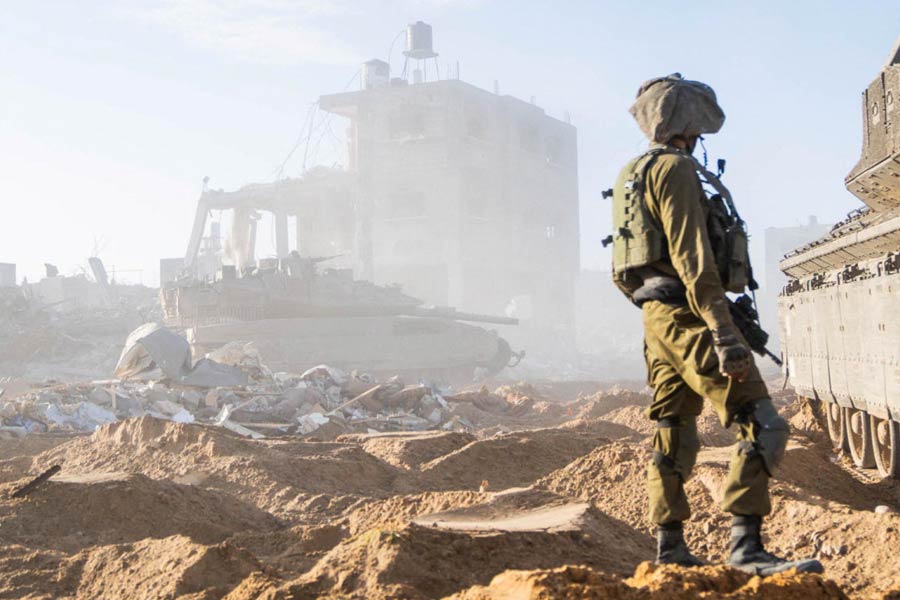Every night during the Muslim holy month of Ramzan, the man would come along Rawoand Altatar’s street, banging on his drum and calling out to the faithful to wake them up for suhoor, the predawn meal. His nightly mission used to be lit up by Ramzan lamps and twinkling decorations.
But this Ramzan, Altatar’s street is eerie. The man, called a musahharati in Arabic, is absent. There are no decorations or electricity, and the street is surrounded by buildings destroyed or damaged in Israel’s bombardment. Their own home has been partially destroyed as well.
“There is no sense of Ramzan,” she said, referring to the month when Muslims fast all day. “We are missing our family and gatherings, the food, even the simplest thing like the sweet juices, the Ramzan decorations and lamps, which filled the streets,” said Altatar, a photographer who worked at a private school before the war.
Israel’s war in Gaza has transformed Ramzan, which began on Monday, from one of colour and boisterous gatherings into one observed against a backdrop of grey rubble and dark, empty streets.
With no hoped-for ceasefire between Israel and Hamas a time of religious devotion, dawn-to-dusk fasting and charity is now a daily struggle for survival.
More than 30,000 Palestinians have been killed in Israel’s bombardment, according to Gazan health authorities, and the threat of famine looms as a result of Israel’s near-complete siege. The war, now in its sixth month, began after Hamas attacked Israel on October 7, killing some 1,200 people and taking around 240 captives, according to Israeli officials.
Families, which once gathered over big feasts to mark the end of a day’s fast, have been separated and dispersed as most of Gaza’s 2.2 million residents have fled their homes. Many now live in crowded tent encampments.
Many mosques where nightly Ramzan prayers were held have been bombed to rubble. Israel has accused Hamas of operating from some of Gaza’s mosques, a charge Hamas denies.
The most basic sustenance, like the dates and drinking water with which Muslims traditionally break their fast, are nearly absent. Also missing is the happiness of children, especially when they come out in the streets after iftar — the breaking of the fast — with their Ramzan lamps and toys, she said.
New York Times News Service










